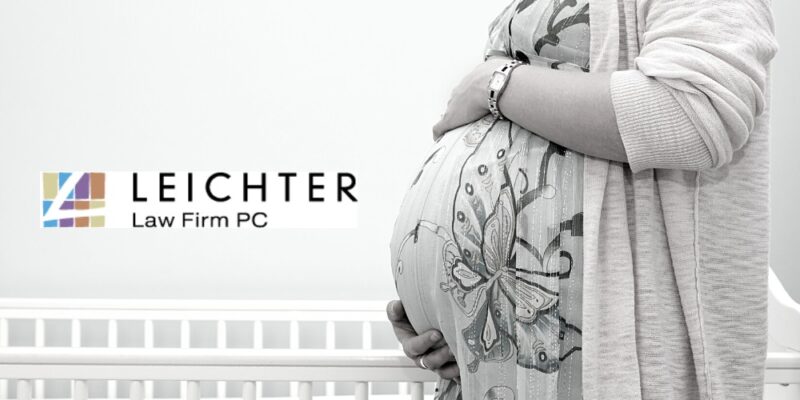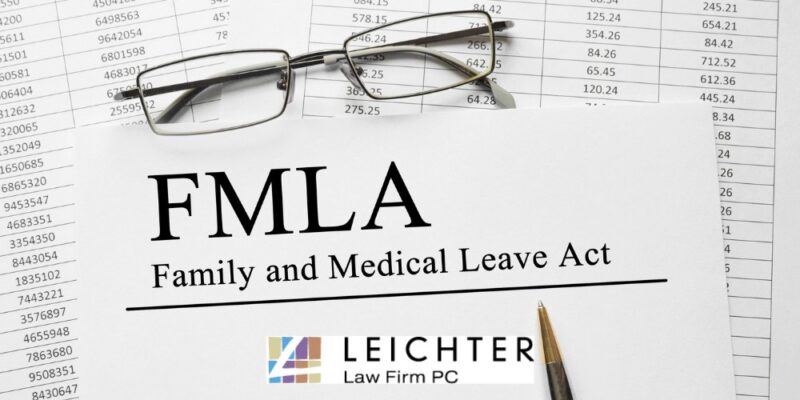Pregnancy Discrimination Lawyer in Austin and Houston, Texas
Have You Faced Discrimination Due to Pregnancy?

Pregnancy is a natural, normal part of life. Unfortunately, far too many women encounter discrimination at work due to pregnancy. It is increasingly common for women to work throughout their pregnancies until their due date. Some women face pressure to continue working at their pre-pregnancy pace. This is despite medical advice to perform less strenuous activities or stay home. However, pregnant workers are entitled to reasonable accommodations if their pregnancy results in certain complications. If your employer has denied you reasonable accommodations or taken an adverse employment action due to your pregnancy, contact a pregnancy discrimination lawyer immediately.
Women have historically faced discrimination due to pregnancy. In light of this, Congress passed the Pregnancy Discrimination Act (PDA) in 1978 to address the issue on a federal level. The PDA amended Title VII of the Civil Rights Act of 1964. This legislation dictates employers must not discriminate against employees or prospective employees due to pregnancy or childbirth.
Certified employment law specialist David Langenfeld believes a woman’s happiness about her future child should not be clouded by the fear of losing her job. He works tirelessly to defend pregnant women in the workplace. To learn more about how the Leichter Law Firm can help you, please contact us today by calling (512) 495-9995 and scheduling your free consultation.
What Is Pregnancy Discrimination in the Workplace?
Pregnancy discrimination is one form of employment discrimination that occurs when pregnant women are not hired, are fired, or are otherwise discriminated against because they are pregnant or intend to become pregnant.
Some forms of pregnancy discrimination include:
- Not being hired due to:
- Likelihood of becoming pregnant
- Visible pregnancy
- Not receiving:
- Reasonable accommodations
- A raise they would otherwise receive
- Fringe benefits
- Consideration for promotion
- Referrals or recommendations
- Necessary training
- Being fired or laid off after:
- Informing an employer of one’s pregnancy
- Returning from maternity leave
An employer might believe their actions and decisions are in their employee’s best interest. Regardless, they may not refuse to hire, demote, terminate, or retaliate against any individual due to pregnancy.
It is illegal for coworkers, employers, clients, and customers to harass pregnant women because of their pregnancy, childbirth, or any related medical condition. Simple teasing does not constitute harassment. However, periodic offensive and/or derogatory comments do. This creates a hostile work environment.
If an interviewer asks a female applicant or employee, but not a male applicant or employee about possible childcare responsibilities, this is also a form of sex discrimination.
Lastly, employers must provide pregnant workers the comparable reasonable accommodation they would provide to an employee with a similar inability or ability to work. Every female employee who is pregnant or has a pregnancy-related condition deserves respect and fair treatment.
If you are an employee or job applicant who has been treated differently by your employer, coworkers, other employees, or even customers, you deserve compensation. Contact a Texas employment lawyer with Leichter Law as soon as possible.
Which Laws Protect Workers from Pregnancy Discrimination?
State and federal laws protect women in the workplace against discrimination, unfair treatment, and adverse employment decisions. The Equal Employment Opportunity Commission (EEOC) enforces all regulations regarding workplace discrimination, including pregnancy discrimination. The following laws are some of the most impactful when it comes to protecting pregnant employees.
The Pregnancy Discrimination Act of 1978
The federal Pregnancy Discrimination Act of 1978 amended Title VII of the Civil Rights Act of 1964. This amendment prohibited pregnancy discrimination as a form of sex discrimination. Under the amended Title VII, pregnancy discrimination can involve the following.
- Past pregnancies
- Current pregnancies
- Future pregnancies
- Pregnancy-related conditions or disabilities
- Birth control
- Having or not having an abortion
Discrimination based on pregnancy is illegal under federal law, and therefore illegal across the nation. The PDA protects pregnant employees, as does the Americans with Disabilities Act (ADA). The ADA protects any pregnant woman in the workplace from discrimination based on a pregnancy-related disability. This act also holds every employer accountable for providing reasonable accommodations for employees.
Family Medical Leave Act
According to the Family and Medical Leave Act (FMLA), new parents (including adoptive parents) who have worked at their company for 12 months or more are eligible for up to 12 weeks of unpaid leave. This applies to foster parents as well. The company must have at least 50 or more employees for at least 20 workweeks in the current or preceding calendar year for this to apply.
Under the FMLA, pregnant employees receive a maximum of 12 weeks of leave for time off needed before, during, and after the child’s birth. Adoptive parents must receive the same rights.
Can My Employer Give Someone Else My Job While I Take FMLA to Give Birth?
No. Employers must hold a pregnant employee’s position available for the same length of time as they would for any employee who is on leave due to a medical condition or temporary disability. According to the FMLA, employers must hold a job for the returning employee for 12 weeks. This is known as job-protected leave.
What Is a Reasonable Accommodation for Pregnancy?
A pregnant employee is entitled to reasonable accommodation if their pregnancy results in a pregnancy-related disability such as gestational diabetes or pre-eclampsia. If a pregnant employee requests a less strenuous position due to a pregnancy-related disability, the employer must accommodate this request. As long as it does not “unduly burden” the employer, they must meet the request. Examples of reasonable accommodations for pregnant employees include the following.
- Allowing the employee to work from home
- Temporarily reassigning them to other, lighter tasks
- Allowing the employee to sit during their shift
- Reducing or eliminating heavy lifting
If an employer usually accommodates employees who are “similar in ability or inability to work,” they must provide the same accommodations to pregnant employees. Similarly, employers that allow temporarily disabled employees to take disability or unpaid leave must allow the same for every pregnant employee.
What Is an Undue Burden?
Undue burden measures the amount of trouble, including monetary expenditures, loss of business, and supervision requirements it takes for an employer to effectuate a given accommodation. For instance, it usually is not unduly burdensome for an employer to modify a woman’s less essential job duties or change her assignment to accommodate her pregnancy. Another term that many people use for an “undue burden” is “undue hardship.”
Do I Need to Disclose Pregnancy to My Employer?
No. You are not legally required to disclose your pregnancy at any point throughout the pregnancy. This is a personal decision, so you may or may not choose to tell your employer at your discretion. Many employees choose to disclose their pregnancy at some point during their second trimester. This allows them plenty of time to coordinate their time off and work plans with their employer.
Are Employees Protected from Discrimination for Past Pregnancies?
Yes. Both applicants and employees cannot face discrimination because of past pregnancy or related medical conditions. Employees cannot be fired after returning to work due to a pregnancy-related need. Any medical condition related to a past pregnancy is protected, and an employer may not treat an employee differently because of it.
Are Medical Conditions Related to Pregnancy and Childbirth Covered?
Yes. Employers cannot discriminate against employees who suffer medical conditions during pregnancy or after childbirth. Some of these conditions include:
- Pre-eclampsia
- Gestational diabetes
- Lactation issues
Do I Need a Pregnancy Discrimination Attorney?
Pregnancy discrimination cases are complicated and sometimes difficult to prove — that does not mean you should give up. You deserve a workplace free from discrimination. You need to find an attorney you can trust to advocate for you. To build a strong case, an attorney needs to complete extensive research, consult with appropriate experts, and file all relevant paperwork correctly and on time. By working with a qualified pregnancy discrimination attorney, you can rest assured that your case will be handled efficiently and with the utmost care.
How Do You Win a Pregnancy Discrimination Case?
A pregnancy discrimination claim has the potential to be exceedingly complicated. To prove pregnancy discrimination for your case, you and your attorney must show that it is more likely than not that you suffered a negative employment action due to childbirth, pregnancy, or a related condition. You will have a strong pregnancy discrimination claim if you can prove any of the following.
- You requested maternity leave under the Family and Medical Leave Act, but your employer denied the request.
- Your employer initiated a negative employment action against you because of your pregnancy.
- You were not hired because of your pregnancy.
- Your employer changed your benefits or wages because of your pregnancy.
Employers are unlikely to admit fault in these cases. For this reason, working with a skilled employment lawyer is your best option. They will walk you through the claims process, help you build a strong case, and ensure that your voice is heard.
How Much Can You Recover from a Pregnancy Discrimination Case?
If you win your pregnancy discrimination case, our attorneys will fight to recover the compensation you deserve. The damages you may be entitled to in a successful case include the following.
- Back pay and front pay
- Emotional distress
- Attorney fees and court costs
- Punitive damages in the event of particularly egregious misconduct from the defendant.
Working with a seasoned attorney is the best way to achieve a fair settlement. At Leichter Law, a board-certified labor and employment specialist is waiting to take your case and fight for your right to fair treatment and just compensation.
Contact the Texas Pregnancy Discrimination Lawyers at Leichter Law Today
An experienced pregnancy discrimination attorney will provide representation on your behalf during necessary court procedures or settlement negotiations. Most importantly, they can help you obtain compensation for losses resulting from your employer’s discriminatory actions. Employment law expert David Langenfeld has dedicated his entire career to advocating for workers’ rights in Texas. Call the Leichter Law Firm at (512) 495-9995 to schedule your free, confidential consultation with us.
Get in Touch
Office Locations
1602 E 7th St
Austin, TX 78702
Phone: (512) 495-9995
Get Directions
3700 N Main St
Houston, TX 77009
Phone: (713) 714-2446
Get Directions
214 N 16th St #128
McAllen, TX 78501
Phone: (956) 205-0884
Get Directions





